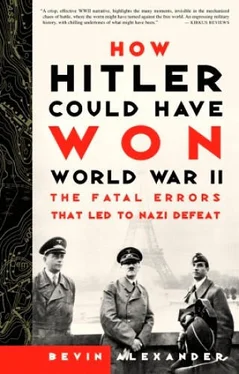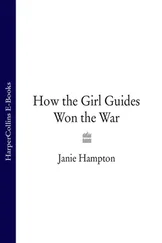The air war thus degenerated into a vicious campaign aimed at destroying homes and people, and had no significant role in deciding the war. While the world’s eyes were fastened on Britain, conditions on the Continent had worsened. On the day Paris fell Soviet Premier Joseph Stalin sent an ultimatum to the three Baltic republics of Lithuania, Latvia, and Estonia, quickly occupied them, then staged fake elections that called for their absorption into the Soviet Union. Secret police seized thousands of Baltic leaders and intelligentsia and brought them to Russia, where most died.
On June 16, 1940, the Kremlin also demanded from Romania the cession of Bessarabia and northern Bucovina, both adjoining Soviet territory. Romania capitulated at once.
Stalin’s moves against his neighbors disturbed Americans greatly. A few saw them accurately as hedges against potential German aggression. But most, suspicious of Communism, took them as evidence of more brute force being let loose in the world. Stalin’s aggressions, combined with shock over the fall of France and fear about Britain’s survival, caused the American nation as a whole to close in on defense of the Western Hemisphere.
Before the summer was out, Roosevelt had signed a law to create by far the greatest navy on earth (doubling the fleet), began building an air force of 7,800 combat aircraft, called the National Guard into federal service, passed the first peacetime draft in American history, and swapped fifty old U.S. destroyers for long-term leases of bases on eight British colonies from Newfoundland to British Guiana (Guyana).
However, Franklin D. Roosevelt was seeking any way possible to support Britain’s war against Hitler. His hand was strengthened greatly on November 5, 1940, when he became the first (and only) American president elected to a third term.
On December 17, FDR announced to reporters that he was determined to maintain Britain as the nation’s first line of defense. And, since Britain could not pay for all the goods it needed, he proposed that the United States “lend” the British arms, aircraft, food, vehicles, and any other materials they required. The public responded favorably to the idea and to Roosevelt’s call in a December 29 national radio “fireside chat” that the United States become “the arsenal of democracy.” In his inaugural address on January 6, 1941, FDR advocated a postwar world based on the “four freedoms”—freedom of speech and worship, and freedom from want and fear.
On January 10, 1941, the “lend-lease” bill was introduced into Congress, and on March 11, 1941, it became law. Lend-lease set American factories to producing war goods at full capacity. Exploiting American economic strength was essential to success against Germany, thus lend-lease was a major step toward American entry into the war.
The likelihood became even stronger during the winter of 1940–1941 when high-level British and American military officers met in secret sessions in Washington to discuss a broad joint strategy in the event the United States entered the war. The talks (known as ABC-1 for American-British conversations) concluded on March 29, 1941, with the recommendation that the defeat of Germany, which was far more powerful than Japan, should have the highest priority. Roosevelt did not formally endorse ABC-1, but followed it.
The British and Americans couldn’t agree on a policy against Japan. The British urged moving the American Pacific fleet to the Philippines and Singapore, but the Americans decided to keep it at Pearl Harbor in Hawaii and continue to negotiate with Japanese diplomats in hopes of a peaceful solution.
5 THE FATAL TURN TO THE EAST

HITLER HAD ALREADY SWITCHED HIS PRINCIPAL INTEREST AWAY FROM BRITAIN before the air war commenced. This came formally on July 31, 1940, in a conference with his senior military chiefs, when Hitler announced his “resolve to bring about the destruction of the vitality of Russia in the spring of 1941.”
This statement worried a number of German senior officers. They feared leaving Britain and its potential ally the United States as threats in the west, while Germany focused its energy, thoughts, and power on destruction of the Soviet Union.
The top army generals, along with their staffs, amassed arguments to convince Hitler to neutralize Britain before turning on Russia. Perhaps they realized dimly what Winston Churchill had grasped: that Britain’s best chance lay in holding out until Hitler made an irreparable slip, as Napoleon had done when he invaded Russia in 1812.
Only Erich Raeder, the German navy commander, saw the danger clearly enough to press repeatedly and with great conviction for another way to gain Germany’s goals. He demonstrated to Hitler that the victory over France had opened a way to victory—and Hitler would not have to attack the Soviet Union to achieve it.
Major General Alfred Jodl, chief of operations for the Oberkommando der Wehrmacht (OKW), or armed forces supreme command, felt the same way, though less openly and less forcefully. In a June 30, 1940, memorandum Jodl wrote that if the strike across the Channel did not come off, the Mediterranean offered the best arena to defeat Britain. His recommendation was to seize Egypt and the Suez Canal. Maybe the Italians could do it alone. If not, the Germans could help.
At the time the British had only 36,000 men in Egypt, including a single incomplete armored division under the command of General Sir Archibald Wavell. Moreover, Italy’s entry into the war had closed off Britain’s supply line through the Mediterranean except by means of heavily guarded convoys. The main British route now had to go 12,000 miles around the Cape of Good Hope in South Africa, and up through the Red Sea.
Even if Britain devoted all its strength to building a strong army in Egypt, it would take months, perhaps a year, to do so. And Britain was not going to undertake such a task because it had to concentrate most of its efforts on defense of the homeland.
Italy, aided by Germany, could get superior forces to Italy’s colony of Libya far more quickly. At this stage, it would be relatively easy to use Luftwaffe bombers to neutralize Malta, a British possession only sixty miles south of Sicily, where aircraft, ships, and submarines constituted a major danger to Italian supply ships and reinforcements moving between Italy and Tripoli in Libya.
Hitler in his July 31 meeting did not wholly exclude a “peripheral strategy” in the Mediterranean, and Generals Walther von Brauchitsch, commander in chief of the army, and Franz Halder, chief of staff in the army high command, Oberkommando des Heeres (OKH), proposed sending panzer forces (an “expeditionary corps”) and aircraft to Libya to help the Italians, who were planning an offensive into Egypt.
But Hitler hadn’t responded to Jodl’s memorandum and wouldn’t commit himself to a panzer corps and combat planes in Africa. The only thing in the Mediterranean that excited Hitler was the possibility of capturing the British base of Gibraltar, and thereby closing the western end of the Mediterranean to the Royal Navy. Britain had won this strategic rock from Spain in 1704 and had held it resolutely ever since.
Hitler could think of no way to grab Gibraltar except by direct assault. This meant German forces would have to approach through Spain. The Spanish dictator, Francisco Franco, would have to cooperate. Seeing that Hitler was deeply taken with the idea, the senior generals sent Admiral Wilhelm Canaris, chief of the Abwehr— the military counterintelligence service—to Madrid July 20–23 to get Franco’s reaction. Cagily, Franco didn’t reject Spanish help out of hand, but refused to commit.
Читать дальше



![Джонатан Димблби - Barbarossa - How Hitler Lost the War [calibre]](/books/385421/dzhonatan-dimblbi-barbarossa-how-hitler-lost-the-w-thumb.webp)









